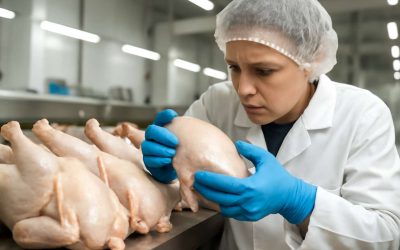
If you are interested in raising baby chicks but don’t have the room for a brooder or don’t want to wait for hatching to begin, an egg incubator may be just what you need. Egg incubators can be purchased online or at most large retail stores, and they are available in a variety of sizes. However, before you purchase one make sure you have thought through how you plan to care for your hatching chicks. If you are new to chicken ownership it is a good idea to start with only a few eggs to be sure that you will be able to successfully raise them to maturity.
There are many different types of egg incubators, from basic models to very expensive ones designed to hatch quail and turkey eggs. Most egg incubators require that the eggs be set in trays with the larger end of the egg up, and that the narrow end is pointed down in the tray. This prevents the developing embryo from sticking to the sides of the shell, and it allows for a more uniform development. The egg tray should be placed in the incubator with the base on a platform to provide a steady flow of warmed air, and an unobstructed area below the eggs should be available for ventilation.
It is important to carefully read the instructions that come with your incubator, especially the section that explains how it works. Some models use a wet bulb thermometer and hygrometer to monitor temperature and humidity levels, while others do not. If you choose a model that does not include these items it is recommended that you purchase an inexpensive thermometer and hygrometer to ensure your eggs are properly cared for.
Once the eggs are set they will need to be turned frequently, usually a few times each day. This keeps the developing fetus from adhering to the sides of the egg, and it helps keep the yolk in the center of the egg. The most important thing to remember is not to increase the turning frequency or amount, as this can damage or even kill your embryos. If you are unsure of the proper turning frequency or method, consult a psychrometric chart online or in a book to find out the best way to maintain your specific type of egg incubator.
The most affordable egg incubators will have a heating element, a tray that holds the eggs and a platform for the eggs to rest on. This is sufficient for most beginner’s needs, but you will need to carefully clean and disinfect the incubator before each use. Larger incubators that are designed to hatch a number of eggs at once often have separate areas for each egg setting. This allows for better sanitation and disease control between hatching sessions.
This egg incubator is a great choice for first-time hatchers because it is very easy to use and includes a clear top that makes it possible to watch the eggs develop. It also has induced air flow, which helps with temperature stability and oxygen circulation. It also features automatic turning, which stops three days before the eggs are expected to hatch, so you won’t need to worry about forgetting to turn your eggs.



0 Comments